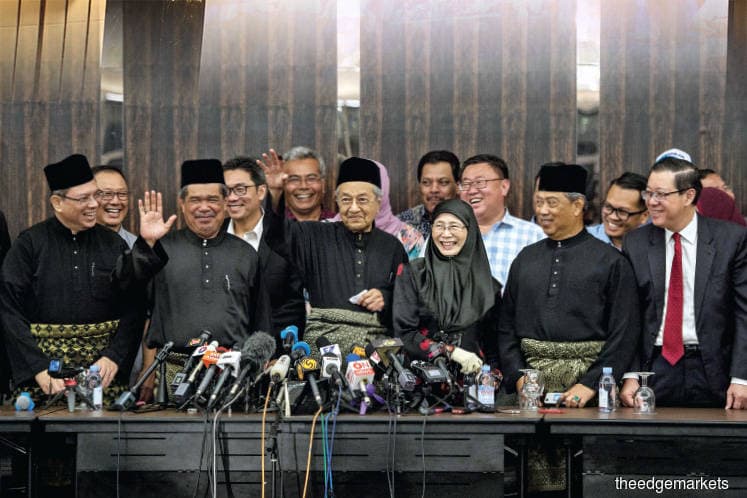
This article first appeared in The Edge Malaysia Weekly on May 6, 2019 - May 12, 2019
Sabah and Sarawak assumed a critical political status for over a decade from the 2008 general election, as their parliamentary seats became indispensable for the formation of the federal government, which at the time was commanded by the longstanding Barisan Nasional coalition.
The political landscape changed drastically in that period, both nationally and in Sabah. Tun Dr Mahathir Mohamad left BN and was able to consolidate the flailing opposition parties into a viable Pakatan Harapan, while long-time federal minister Datuk Seri Mohd Shafie Apdal, who questioned the then prime minister Datuk Seri Najib Razak over the 1Malaysia Development Bhd scandal, also broke away to form the Warisan party in Sabah.
PH and Warisan reached an electoral pact, and when PH cobbled together a slim majority in the 2018 general election, Warisan chipped in its seats and formed a coalition government with PH at the federal level. Warisan also won the Sabah election with its PH partners.
With the Sarawak parliamentary seats being mostly won by BN component parties, which later broke away to become independent, Sabah should have acquired an even more critically important political status vis-à-vis the new federal government. Its electoral pact was such that Sabah politics should have been left to the devices of its local parties, which nevertheless include PH component parties, PKR and DAP, that have been operating locally for a long time. The federal government should have, in general, adopted a hands-off approach to both the politics and the governance of the state, much like what Sarawak has enjoyed over the years.
But such restraint was unfortunately not observed by Mahathir’s own party, Bersatu, which recently chose to spread its wings into Sabah. It conspicuously took in former Umno leaders en masse, some elected and others not, much to the chagrin of many in the Sabah ruling coalition who had fought tooth and nail against them last year. For many among the common folk of Sabah, Bersatu’s entry feels like déjà vu, just as in the early 1990s. At the time, Umno, then under Mahathir, expanded to Sabah and eventually displaced the then ruling PBS, precipitating nearly a quarter century of plundering rule. This time though, it is worse as the very politicians whom the voters had unceremoniously thrown out of the state government less than a year ago are now, in a sense, merrily back in power as they are being treated as part of the Sabah government bench.
Both the people and the government of Sabah want no more than the high degree of autonomy as enshrined in the 1963 Malaysia Agreement on the basis of which they formed Malaysia with their Malayan and Sarawakian counterparts. Nevertheless, many of the special rights and privileges reserved for Sabah have been systematically diluted or outright repealed over the years, and Sabah merely wants to restore them so that it can have more wherewithal to develop itself.
But it appears that the new federal government would so far only deign to consider devolving education and health, two of the most costly powers, to Sabah’s own control. But the extra money that Sabah should be getting from the petroleum revenues remains elusive as the federal stakeholders remain half-hearted in the negotiations. And the recent attempt at constitutional amendment, allegedly to give more prominence to the special status of Sabah and Sarawak, received only lukewarm public response as many were looking forward to more wholesale amendments that would once and for all restore Sabah’s rights.
The trust deficit is definitely present in the minds of Sabahans when it comes to federal promises of future restoration of state rights. And if it is not handled delicately, it would send political ripples across the state.
Oh Ei Sun is senior fellow at the Singapore Institute of International Affairs
Save by subscribing to us for your print and/or digital copy.
P/S: The Edge is also available on Apple's AppStore and Androids' Google Play.